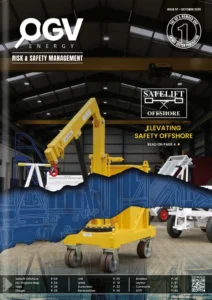Solving offshore power delivery challenges through collaboration
With oil and gas operations taking place hundreds of kilometres offshore and in increasingly deeper waters, oil and gas operators typically rely on umbilical cables to deliver both hydraulic and electrical power supply and controls to their subsea applications.
However, aging assets in the North Sea are more susceptible to low insulation resistance (IR) within these umbilical cables. IR is defined as the ability of the insulation material to prevent leakage currents flowing between live conductors, or from the conductors to ground.
There are a number of factors which influence IR, including the stress of handling and installation, and environmental factors of being on the seabed such as debris and geophysical shifts. Repairing IR issues is often costly and time intensive, with many operators opting to shut in assets rather than risk further insulation damage to the cable.
In a recent project for an oil and gas operator offshore Canada, Verlume, J+S Subsea and Viper Innovations worked collaboratively to provide an electrical solution to low IR problems. Using battery-powered technology, the project aimed to quickly implement a solution before the asset had to be shut in with production and cost implications.
A challenge for offshore power
Here, the operator’s Floating Production, Storage & Offloading (FPSO) vessel was scheduled to be disconnected for routine maintenance. This disconnect would jeopardise the IR of the existing umbilicals, which were being maintained by Viper Innovations’ cutting-edge V-LIFE technology.
With risk of further degradation to the umbilicals potentially contributing to decreased operability of the field and multi-billion-dollar costs, a quick remediation was required. The proposed solution needed to be a short-term, reliable means of power delivery to ensure the continued running of IR maintenance infrastructure and therefore the operator’s production, whilst remaining cost-effective with easy installation into existing infrastructure.
A collaborative solution
J+S Subsea devised three subsea battery-powered control systems to maintain integrity of the subsea electrical cables when topside electrical power was unavailable.
This included integrating Viper Innovations’ IR maintenance technology with Verlume’s Charge, rechargeable battery pack. Taking a collaborative approach, the three North East-Scotland based subsea specialists used their combined knowledge to swiftly provide a solution to the client’s need.
The J+S Subsea systems can be recharged on the deck of a Construction Support Vessel (CSV) or onshore, via the supplied charger, and redeployed for a further 90 days. Each system consists of a Verlume-supplied subsea battery and separate J+S Subsea control unit housing Viper’s V-SLIM (Subsea Line Integrity Monitor), with mating Electrical Flying Leads (EFL), housed in a steel frame constructed in accordance with DNV regulations.
The technology
As a fundamental indicator of the health of a system, Viper’s V-SLIM (Subsea Line Integrity Monitor) measures total system IR, enabling the existing V-LIFE infrastructure to recover low insulation faults through a patented electrical passivation signal.
Within the frame, V-SLIM is encased in a compact cannister next to Charge. Being paired with J+S Subsea’s control unit, Viper’s V-SLIM technology will work to provide a maintain IR whilst the client’s FPSO is off-location.
Powering Viper Innovations’ technology is Verlume’s Charge battery system, which offers high density energy subsea storage for maximum bottom time deployment. Three 55kWh Charge systems were supplied as part of this project, providing 90 days of continuous power delivery. Two were simultaneously deployed at project commencement and the third will be deployed later to allow for system rotation and recharging.
Integral to the quick delivery of this project was the ability to capitalise on the availability of components in J+S Subsea’s Legacy Locker, an open industry portal for the re-use, refurbishment, repurposing, and recycling of subsea equipment.
Future applications
Following the success of this collaborative project, the three companies are exploring future applications of these innovative systems across the offshore environment in further global deployments in the challenging deepwater environments of offshore oil and gas operations.
Published: 09-08-2024














